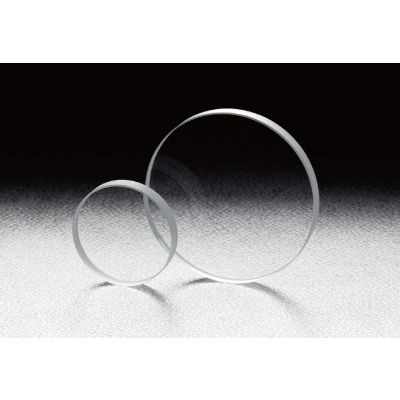Water Free Synthetic Fused Silica Window 30mm Diamter 5mm Thick
OPNQ-30C05-P
A standard Fused silica window has hydroxyl absorption (OH radical group) at wavelength 1.4μm, 2.2μm, 2.7μm. Anhydrous synthetic quartz is a special material that does not absorb water molecules in the molecular glass; therefore there is no hydroxyl absorption at the IR region.
◦The physical characteristics and optical properties of none hydroxyl absorption at IR region is the only difference from conventional synthetic quartz.
◦The material is physically robust and provide higher stability and is recommend for use in vacuum and high pressure environments.
◦The material is physically robust and provide higher stability and is recommend for use in vacuum and high pressure environments.
| Name | Water Free Synthetic Fused Silica Window 30mm Diamter 5mm Thick |
|---|---|
| Weight | 0.0080lbs |
| Standard Coatings Available | No |
| Guide |
|
| Remark | - |
| Attention |
|
| Image Label | Water Free Synthetic Fused Silica Window 30mm Diamter 5mm Thick |
| Diameter φD | 30mm |
| Material | Water Free Synthetic Fused Silica |
| Parallelism | <3′ |
| Surface Quality <br> (Scratch-Dig) | 20-10 |
| Diameter φD | φ30mm |
| Thickness t | 5mm |
In stock
SKU
OPNQ-30C05-P
SGD 292.70
A standard Fused silica window has hydroxyl absorption (OH radical group) at wavelength 1.4μm, 2.2μm, 2.7μm. Anhydrous synthetic quartz is a special material that does not absorb water molecules in the molecular glass; therefore there is no hydroxyl absorption at the IR region.


